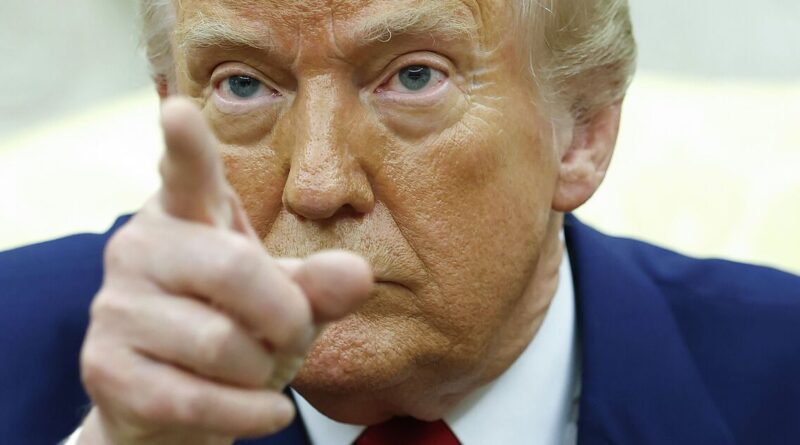Donald Trump insists he’s not to blame as US Dollar plunges | World | News
Donald Trump’s scathing attack on Federal Reserve Chair Jerome Powell triggered fresh market turmoil overnight, with Wall Street suffering one of its sharpest drops this year. Mr Trump accused Mr Powell of failing to cut interest rates despite falling energy and food prices, branding him “Mr Too Late” and a “major loser”.
In a typically blunt post on Truth Social, he said: “There is virtually No Inflation,” and warned the economy could stall unless the Fed acts ‘NOW’.” The former President also claimed the Fed cut rates ahead of the last election to help “Sleepy Joe Biden” and Vice-President Kamala Harris win—a claim economists say lacks evidence. His remarks appeared to rattle investors, fuelling fears of renewed political pressure on the central bank.
The Dow Jones Industrial Average slumped more than 1,000 points, while the S&P 500 fell 2.8% and the Nasdaq dropped 3.2%. The dollar also tumbled to a three-year low.
Chicago Fed President Austan Goolsbee resisted the political heat, warning that interference could damage the central bank’s independence and worsen inflation.
The Fed has been signalling caution, insisting it will not cut until inflation comes down further. If implemented, Mr Trump’s proposed global tariffs are also likely to push prices higher, complicating the picture even more.
The renewed pressure has left traders on edge, with safe-haven assets like gold soaring and confidence in U.S. financial stability taking a fresh hit.
Speaking to Radio 4’s Today programme, Professor of Economics at the University of California said: “We’re somewhere between we don’t know if there’s going to be a Federal Reserve in the next month, and business as usual and we’ve seen everything in between.
“This morning President Trump called Jerome Powell, Mr Too late and I kind of view that as a little too aggressive. So Mr Too aggressive meets Mr Too late.”
He explained: “Historically, before the 1970s there was significant pressure on the Fed from time to time.
“However, in the last 30 or 40 years, what we’ve learned is that central bank independence is the key to financial stability and low inflation.
“And I think this is a major reversal, and we have to watch out for it.”





